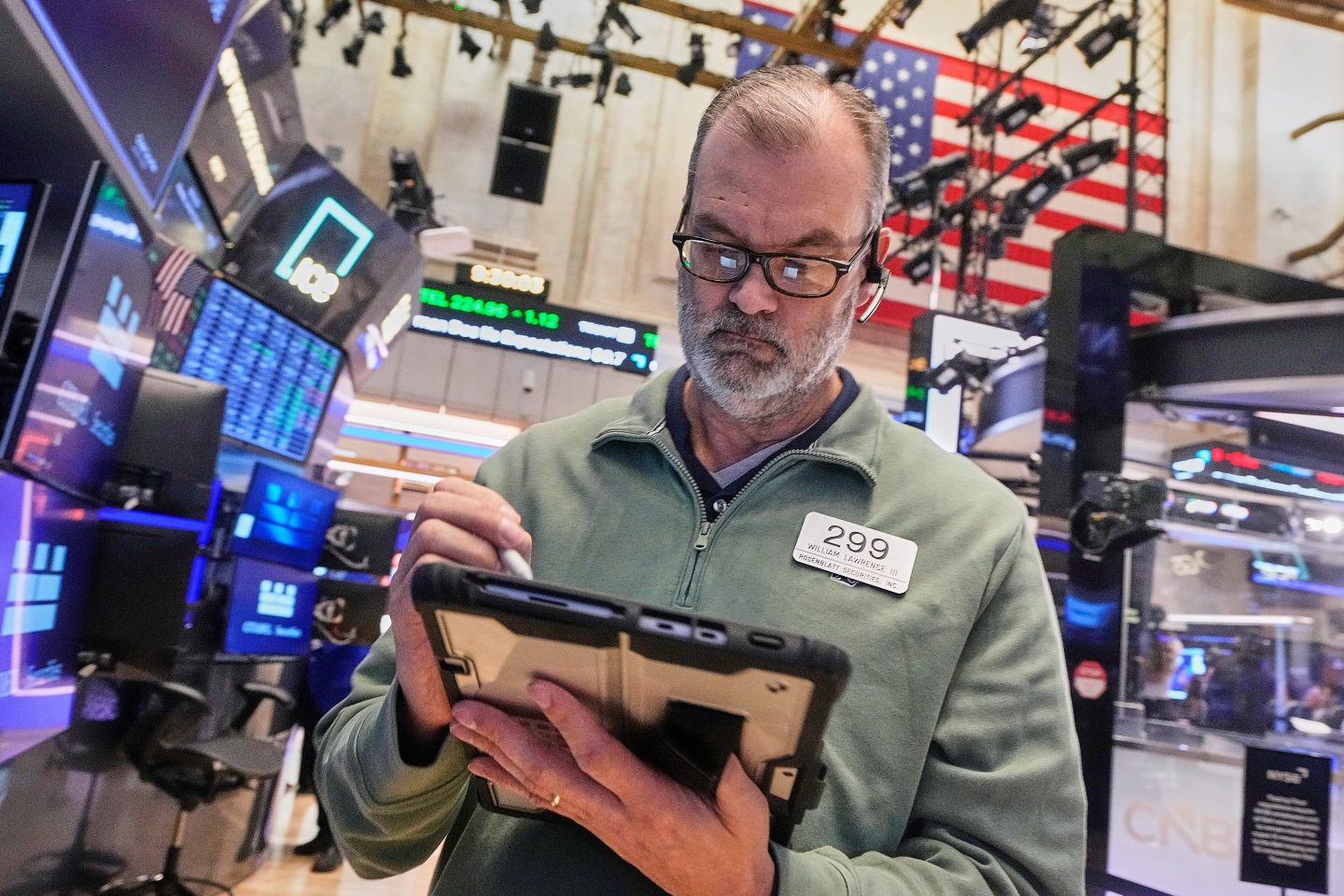Confirmed coronavirus cases in the U.S. crossed 200,000 on Thursday, but experts agree the actual number of infected people is much higher. The lack of reliable data—a persistent problem since the pandemic began—has made it impossible to determine the actual size of the outbreak, hampering the U.S. response.
This may explain why health startups, which generate data of their own, are getting new attention during the crisis. The startups, which seek to harvest data from products and self-reporting online, believe they can collect and publish information that will provide a better picture of the pandemic—even as medical experts question if such data is reliable.
The most prominent of these startups is Kinsa, a maker of Internet-connected thermometers that has created an online map that purports to show “atypical” illness spikes in different U.S. counties. In past years, Kinsa says it has been two weeks ahead of the Centers for Disease Control and Prevention in predicting flu outbreaks, and its CEO, Inder Singh, says its data can be a powerful tool during the current pandemic.
“The intuition is simple. If there’s rising level of fever in an area that doesn’t appear to be cold and flu, it’s something else—and that something else is COVID,” says Singh. “What we’re seeing is extraordinarily unusual—it’s a black swan event when it comes to data.”
Singh qualified his comments by noting the data Kinsa has produced for its COVID map has yet to be peer-reviewed, an important step in verifying the reliability of medical information. But he says the company’s data scientists are authorities in health and have been running similar models for years at the eight-year-old company.
Kinsa isn’t the only startup that wants to augment the data collected by government about the extent of coronavirus contagion. On Wednesday, entrepreneur and health consultant Jillian Kowalchuk, who claims to have caught the virus from the wife of Canada’s Prime Minister, launched an initiative called Operation COVID-19.
Operation COVID-19 aspires to collate a new data set based on anonymized, self-reported questionnaires. The project is open source, and Kowalchuk says the team building it includes developers from companies like Google.
“The more people who can contribute their COVID-19 experiences, we can turn the table on this pandemic and build more intelligence to save lives,” Kowalchuk told Fortune by email.
But while the prospect of more—and possibly better—data to assess the pandemic sounds promising, medical experts are doubtful that the startups can produce meaningful information.
James Hodge, director of the Center for Public Health Law and Policy at Arizona State University, says medical statisticians are unlikely to turn to private companies for health data. He described such data as “unreliable and unnecessary,” especially in the case of self-reported COVID cases.
“As for self-reporting, let’s just say that’s pretty useless,” said Hodge, noting that the potential for people to misdiagnosis their illness or provide false information in such situations is enormous.
Meanwhile, on Thursday, tech news site TechCrunch removed the article about Operation COVID-19 from its website, citing an absence of academic or medical validation for the project.
Statistical sampling
Shimrit Keddem, a Ph.D. statistician and medical researcher at the University of Pennsylvania, likewise expressed skepticism about private data collection efforts—including those of Kinsa, the smart thermometer company.
“There’s a huge potential for bias in that data, including the type of people who will buy the thermometer in the first place,” said Keddem, adding it was unlikely the Kinsa data offered an adequate geographic sample.
Both Keddem and Hodge said the best model for assessing the true number of coronavirus cases in the U.S. is the use of statistical sampling based on data from public health authorities.
This method, they say, is what informed the fatality projections of 100,000 to 200,000 recently put forth by the CDC and White House adviser, Dr. Anthony Fauci. (While statistical sampling typically produces quite specific predictions, the projected range for fatalities is so broad in part because the mitigating effects of social distancing orders remain to be seen.)
Other academics, however, appear more open to new ways to gather COVID-related data. These include a consortium of researchers who on Thursday announced an app called “How We Feel,” which invites users to report health symptoms along with their zip code.
“Each health check-in may feel like a small act, but together they’ll make a huge difference for researchers like myself who are trying to understand this outbreak and develop intervention measures to control it,” said Xihong Lin, a professor of biostatistics at Harvard University, in a statement.
The consortium also includes researchers from Stanford University, Cornell University, and the University of Maryland, as well as a volunteer team from the social media company Pinterest.
Meanwhile, Singh, the Kinsa CEO, is adamant that his company—which like the CDC relies on statistical sampling to inform its predictions—can play a critical role in assessing the pandemic.
He says Kinsa is currently consulting with federal and state health authorities, and that it is sharing its analytics with them for free. Singh adds the company has also been working with cities like St. Augustine, Fla., to supply its thermometers to a larger share of the population and make its data more representative.
“We’re not a tech company trying to come in and revolutionize public health. We’re public health people using technology,” he says.
More must-read tech coverage from Fortune:
—How the coronavirus stimulus package would change gig worker benefits
—Inside the global push to 3D-print masks and ventilator parts
—Apple focuses on what’s next amid coronavirus outbreak
—A startup is building computer chips using human neurons
—Listen to Leadership Next, a Fortune podcast examining the evolving role of CEO
—WATCH: Best earbuds in 2020: Apple AirPods Pro Vs. Sony WF-1000XM3
Catch up with Data Sheet, Fortune’s daily digest on the business of tech.











